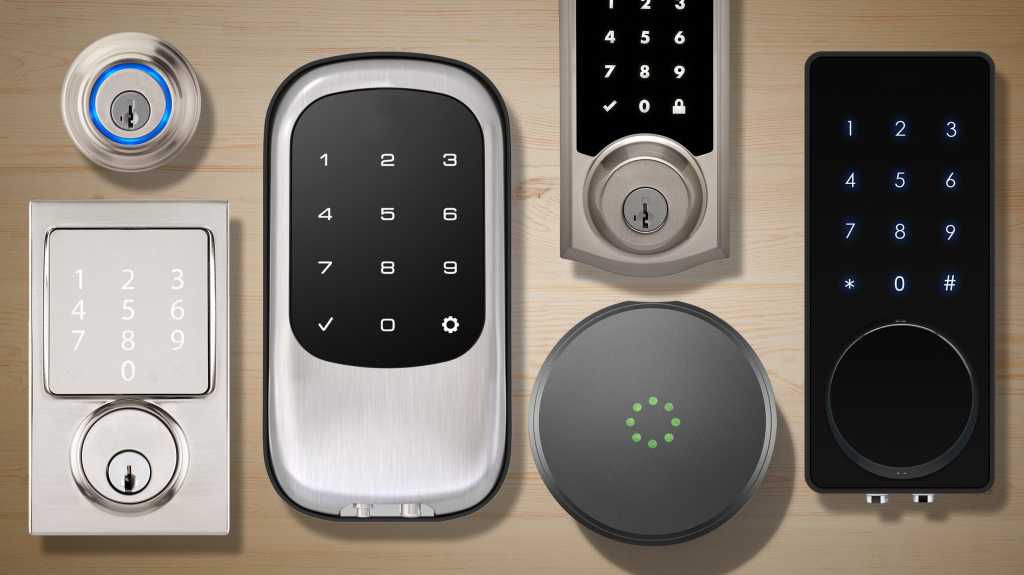No smart home is complete without a smart lock. They represent the biggest improvement to home security since the lock-and-key system was invented more than a thousand years ago. In many cases, smart locks dispense with physical keys altogether in favor of PINs, fingerprints, NFC devices, and apps. They deliver lots of other benefits, too.
Most smart locks have logging systems, so you can keep track of who’s coming and going–and when. That’s incredibly useful whether you have a teenager who tends to break curfew or merely want to give temporary access to houseguests, service providers, or Airbnb guests. Smart locks are an incredible upgrade over the old way of doing things. These are our top picks in several categories.
Why you should trust us
TechHive’s editors and contributors have been testing smart locks since the very first models came to market, and we continuously evaluate the latest models along with their accompanying apps. We’ve tested keyless smart locks, retrofit locks, locks with keypads, Bluetooth-only locks, locks that support geofencing, and more. You can trust us to guide you to the right smart lock for your needs.
Updated November 14, 2024: We’ve added links to our news story on the availability of a Matter-enabling firmware update for the Level Lock+ and to our Aqara Smart Lock U300 review.
Our top picks for smart locks
Level Lock+ Connect — Best smart lock overall
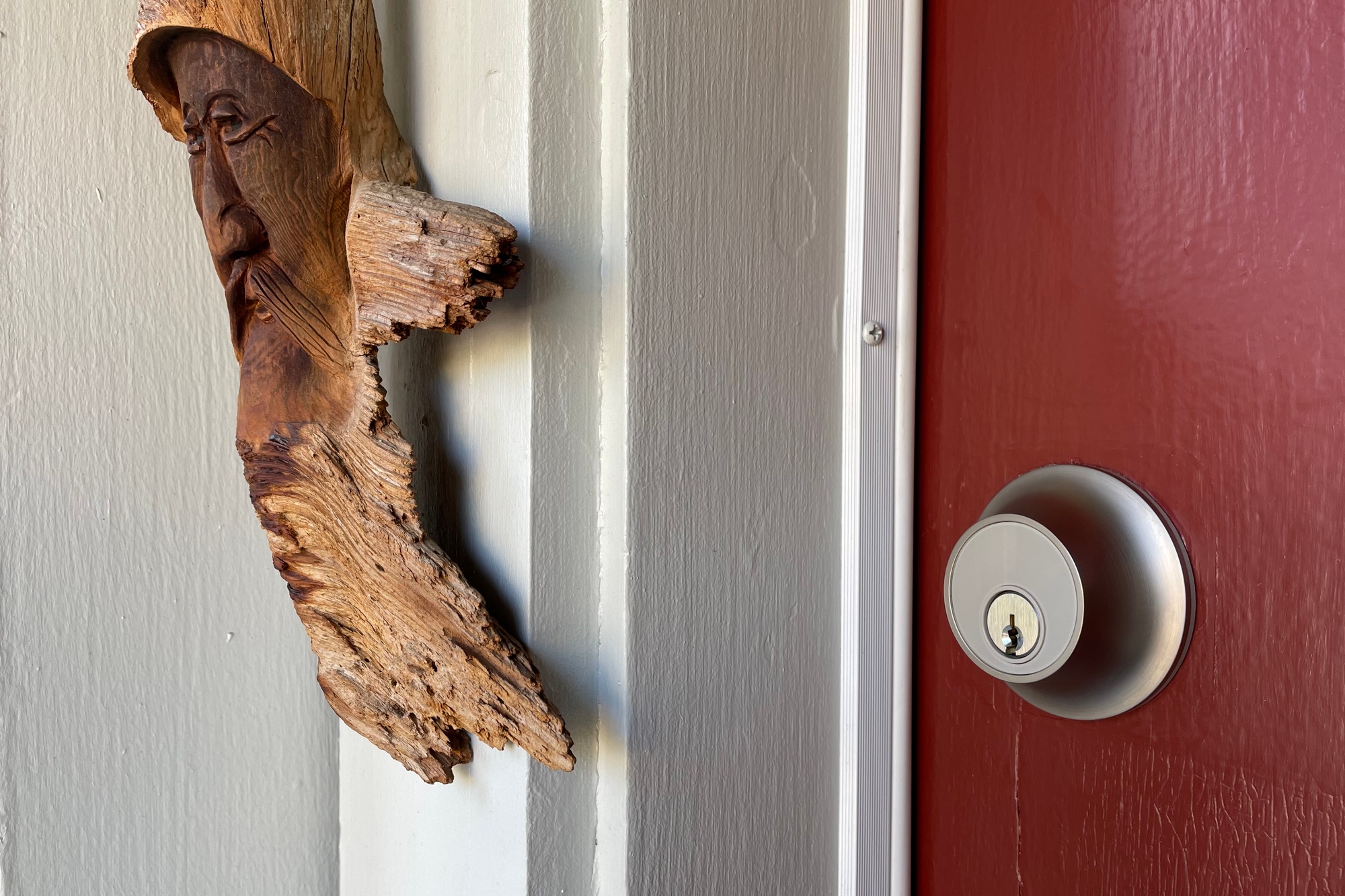
Pros
- Understated industrial design that doesn’t scream “it’s a smart lock!”
- Supremely easy to install and set up
- Compatible with Alexa, Google Home, and Apple HomeKit (including Apple’s “home key” NFC tech
- Thread radio onboard for eventual Matter certification
Cons
- No biometric security
- Pricey
Why we like the Level Lock+ Connect
Now bundled with the Level Connect Bluetooth-to-Wi-Fi bridge, the Level Lock+ Connect is fully compatible with all three of the major smart home platforms: Amazon Alexa, Apple HomeKit (including Apple’s “home key” NFC tech), and Google Home. The inclusion of the bridge also erases the biggest cons we had for this minimalist lock that looks as good as it operates. It remains our highest-rated smart lock–there is nothing better on the market today–and it could get even better when its Thread radio is activated, adding Matter compatibility.
Who should buy the Level Lock+ Connect
While the Level Lock+ Connect is now compatible with Alexa, Apple HomeKit, and Google Home, we believe Apple users will have the best experience with this lock. The arrival of Matter compatibility will presumably iron out the kinks for Alexa and Google Home users, but Level’s promised Matter update (the lock is Matter-certified, but its Thread radio is still dormant).
Kwikset Halo Touch — Best mainstream smart lock
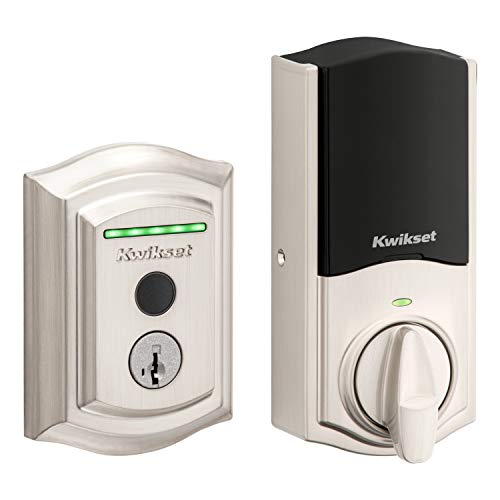
Pros
- Effective operation with a top-notch fingerprint scanner
- Connects directly to Wi-Fi, no hub or bridge needed
- Smaller and more attractive exterior escutcheon compared to most of the competition
- Streamlined setup process
Cons
- App becomes mired in lengthy delays every time a setting is changed
- Interior escutcheon is still industrial-class ugly
- Relatively expensive
Why we like the Kwikset Halo Touch
Kwikset has finally gotten into the biometrics game with the launch of the Halo Touch smart lock, and the lock benefits from a handsome exterior design, easy installation, a basic but fully-featured app, and–best of all–an effective, fast, and accurate fingerprint scanner.
Who should buy the Kwikset Halo Touch
Hey, we get it. Not everyone wants to spend big bucks on the absolute best product in any given category. That’s why we’ve made a distinction here between “best mainstream” (the Kwikset Halo) and “best overall” (the Level Lock+). The Kwikset’s lock isn’t compatible with Apple’s HomeKit ecosystem, but it doesn’t depend on a separate bridge to connect to your Wi-Fi network and it costs $110 less than Level’s offering–which doesn’t have a fingerprint reader.
Wyze Lock Bolt — Best budget-priced smart lock
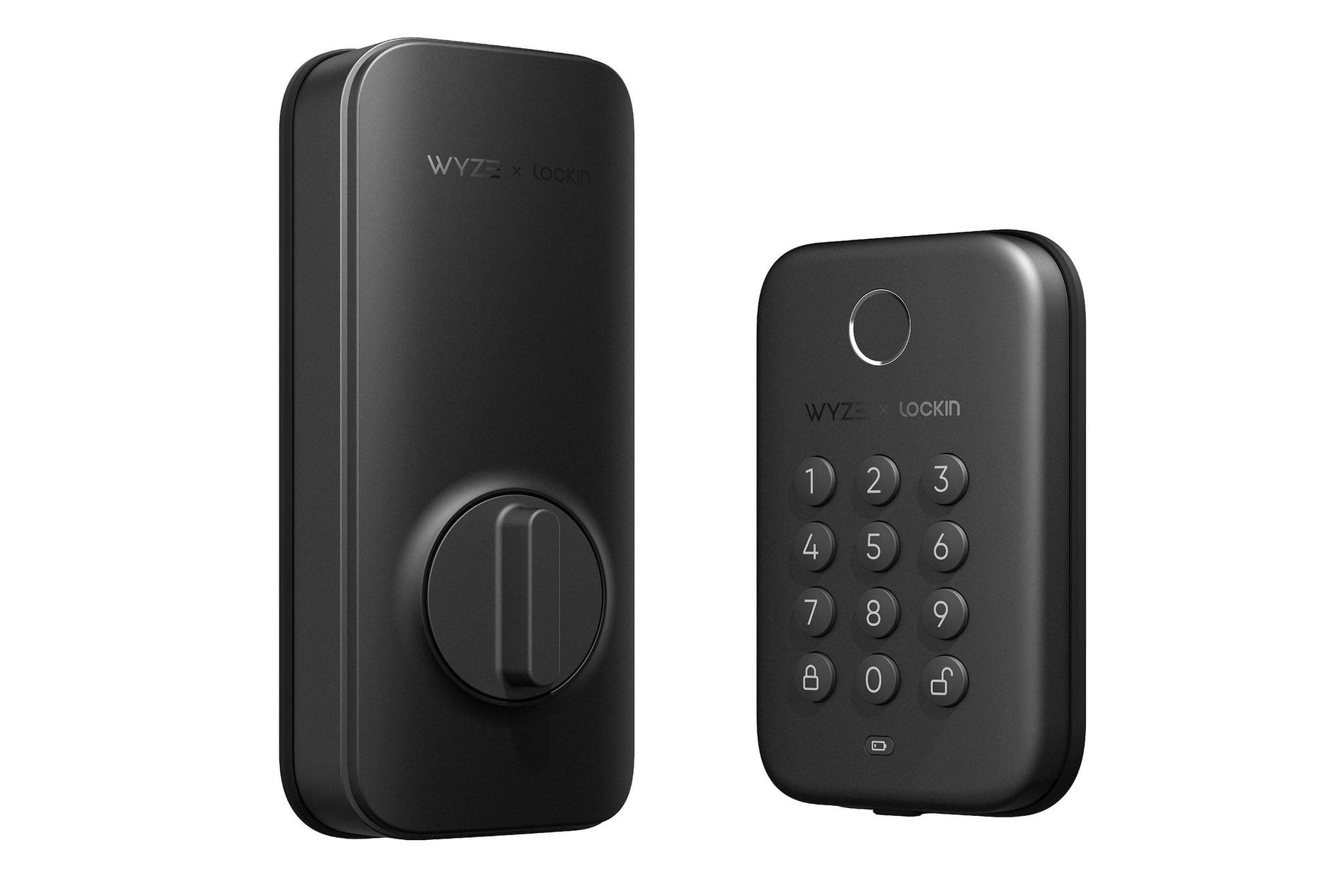
Pros
- An amazing smart-home value
- Inclusion of a fingerprint reader is impressive at this price
- Worked perfectly throughout our evaluation
- You can establish temporary PIN codes from afar, even without Wi-Fi
Cons
- Bluetooth only, no Wi-Fi connectivity
- Can’t be incorporated into a broader smart home system
- Uninspired industrial design
- Can’t detect if the door is open or closed
- No physical key
Why we like the Wyze Lock Bolt
At $70, Wyze Labs’ Lock Bolt Bluetooth smart lock is dirt cheap compared to what the rest of the smart lock industry has to offer. Even better, it even includes a few features even advanced smart locks tend to miss. Installation is easy, you can create temporary PIN codes from anywhere, a fingerprint reader is included (a rarity at this price), and best of all, the lock worked flawlessly during our testing process.
Who should buy the Wyze Lock Bolt
If you can do without Wi-Fi connectivity, the Wyze Lock Bolt is a phenomenal value for a full-fledged smart lock (this isn’t just a retrofit device), especially given that it includes a fingerprint reader. Just be aware that as a Bluetooth-only device, the Wyze Lock Bolt lacks support for geofencing, voice commands, or integrations with broader smart home ecosystems. Still, this lock is a great value for the money.
Level Bolt Connect — Best retrofit smart lock
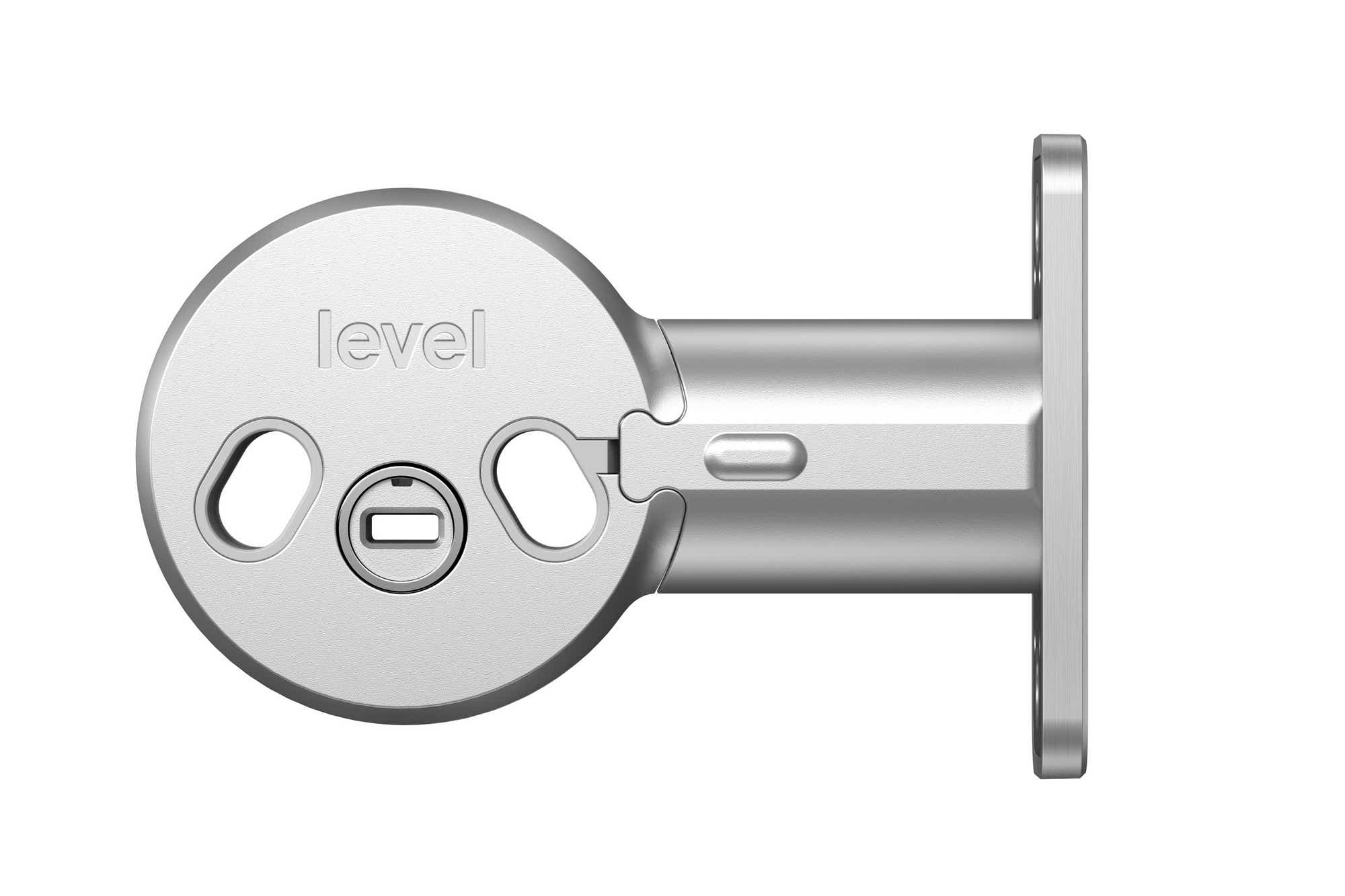
Pros
- The champion of unobtrusive retrofit smart locks
- Very easy to set up and use
- Near flawless operation in daily use
Cons
- Geofencing didn’t work
- Minimal activity logging
- iPhone users will need a HomeKit hub for away-from-home control
- Android phone users will need an Amazon Sidewalk bridge in order to control the lock while away from home
Why we like the Level Bolt
Level Home’s Level Bolt Connect is our favorite retrofit smart lock, thanks in large measure to its ability to disappear. The smart components of the Bolt hide inside your door, where they replace the interior mechanical elements of your existing deadbolt. You re-attach your existing interior and exterior components, so that your door’s overall aesthetic doesn’t change in the least.
Who should buy the Level Bolt
Now that it comes bundled with the Level Connect Bluetooth-to-Wi-Fi bridge, the Level Bolt Connect is compatible with all three of the major smart home ecosystems–Amazon Alexa, Apple HomeKit, and Google Home–making it a great choice for those looking to retrofit their locks regardless of their smart home platform.
Lockly Vision Elite — Most sophisticated smart lock
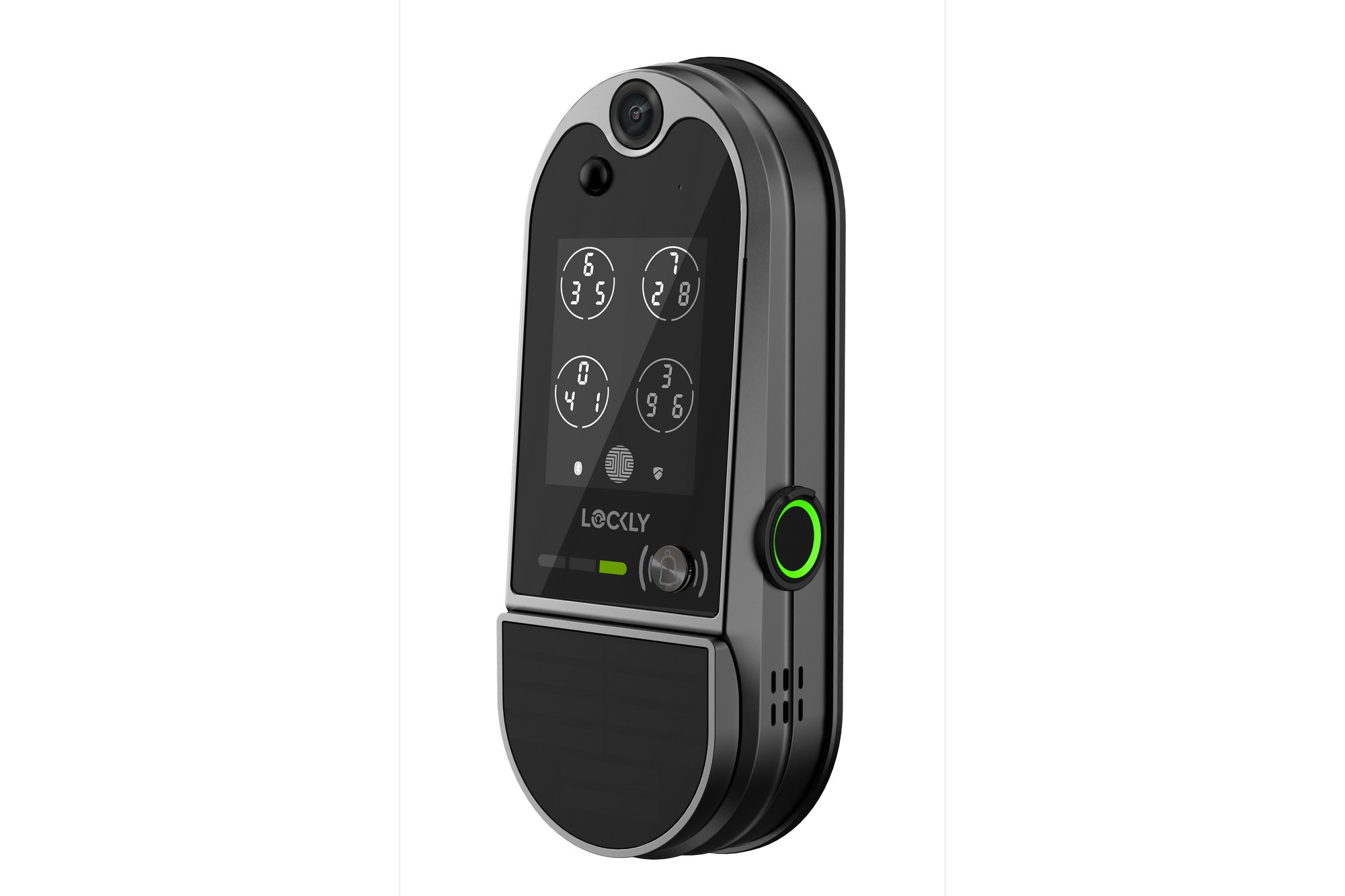
Pros
- Every feature you could want in a smart lock—and then some
- PIN Genie touchscreen is brilliant
- Top-shelf fingerprint scanner
- Wi-Fi bridge and second battery are included
Cons
- Incredibly complex installation
- Not the prettiest lock on the block
- Dazzlingly expensive
Why we like the Lockly Vision Elite
Lockly’s $500 Vision Elite is the most expensive smart lock we’ve tested, but its mountain of features and solid operation make it worth consideration. You should also take into consideration that it eliminates the need for a video doorbell, and that it features both a numeric keypad, a fingerprint reader, and a conventional key cylinder. It is the most sophisticated smart lock we’ve seen, but it’s hard to hide all of its features behind a pretty facade. It’s also very expensive.
Who should buy the Lockly Vision Elite
You’ll need deep pockets to afford the Lockly Vision Elite, but it does double as a video doorbell, so it’s a great choice if you don’t already have a doorbell installed. The Lockly Vision Elite is also ideal if you prefer unlocking your door using a fingerprint reader.
What to look for when shopping for a smart lock
As you’ve doubtless realized by now, not all smart locks are made alike. Some smart locks are designed to completely replace an old “dumb” lock, while others are meant to retrofit an existing lock. Some smart locks will let you create PINs for guests, while others can unlock automatically once you cross a virtual geofence. Here’s a guide to some of the key design options and features in the smart lock category.
Smart home hub integration
If you have an existing hub like the Wink Hub 2, Samsung SmartThings, or an Apple TV, you’ll want to ensure your chosen smart lock is compatible from the start. Many smart locks support Bluetooth, so they work with your phone, but lack the technology needed to connect with your home network.
Some Bluetooth locks, like the Yale Assure system and the August Smart Lock, offer a radio module as an add-on to connect to your home network. If you’re using a smart home hub like the Samsung SmartThings or Wink Hub, look for a lock that supports Z-Wave or Zigbee, instead.
Then there’s Matter, the new smart home standard that promises to unite the major smart home ecosystems. The good news is that smart locks are included in the Matter specification; the bad news is that for now, only a few Matter-enabled smart locks are available. We look forward to checking out more Matter smart locks in the weeks and months ahead.
Entry means
From apps and keypads to fingerprint readers and good, old-fashioned keys, there are myriad ways to unlock a smart lock. Make sure to pick a model that supports the entry method (or methods) you prefer.
Power backup
What do you do if the batteries inside the lock die—and you’re stuck outside? Some locks allow for emergency power to be applied should this happen. Yale’s Real Living locks feature external posts to which you can connect a 9-volt battery, giving you enough juice to get the door open. Other models retain the traditional key cylinder for backup.
Geofencing
Bad about manually locking the door when you leave? A geofencing system automatically locks the door when it detects your phone has left the vicinity, and can be set to automatically open up when it finds you’ve come home.
Guest access features
Most smart locks let you set up temporary keys for houseguests, which you can delete when they’ve returned home. Smarter systems even let you set time restrictions around when each access code can be used.
Frequently asked questions about smart locks
What benefits do smart smart locks deliver?
You can thank the hospitality industry for finally pushing locks into the digital age. Hotels learned long ago that keys are easily lost, expensive to replace, and simple to bypass, as thieves can pick locks or simply make copies of a key to allow for unfettered future access.
On the flipside, hotel guests have readily accepted key cards (and in some cases, smartphone-based solutions) as the primary means of getting into their room. The electronic solution is just so much simpler. Lost hotel key card? Replacing it is no big deal.
But the biggest benefit of electronic entry systems is that they are highly configurable. Digital locks can be changed at a moment’s notice (which is why that old hotel key card in your wallet isn’t good for anything), and the property owner can generate a record of when each door was opened.
In a more advanced setting, different keys can be generated for the same lock, so a homeowner can tell when each member of the family came in, or when the housekeeper arrived.
How do you pick a smart lock? (No pun intended)
This is a young and wildly immature space, and many products on the market are still extremely rough around the edges. Even top products can balk when dealing with old or stiff deadbolts, doors that don’t shut well, or environments where non-standard fixtures are in use.
The bottom line is that it’s tough to declare that any product is universally perfect for every home. That said, here are some key considerations to take into account to help you narrow down your shopping list.
Are some smart locks smarter than others?
Some “smart locks” don’t work with a smartphone app or any smart home networking hubs at all; they’re really just electronic locks that use a code instead of a key to open up.
One step up from that, you’ll find Bluetooth-only locks. These work with a smartphone app, but can’t be monitored remotely or via a smart home system. That’s fine if you’re looking to get rid of the keys in your pocket, but less impressive if you want to make your entrance portals a true part of your home network.
Finally, there are full-on smart locks that connect to your smart home system via Zigbee, Z-Wave, or Wi-Fi.
Do I need to completely replace my old lock to install a smart lock?
You’re forgiven if you don’t want to replace your antique doorknob on your vintage Victorian with a metallic device that looks like it would be more at home keeping people out of a strip mall bank branch.
A sizeable number of smart lock products don’t require you to replace all your existing hardware. Instead, they are installed on the inside of the door only, replacing only the interior part of the deadbolt. You can continue to use a standard key from the outside or open the lock via a smartphone app.
Other notable smart locks we’ve reviewed
We’ve evaluated many other smart locks. If none of our top picks check all the boxes for you, take a look at these other products. We’ve also listed some smart locks that you should avoid.
- Abode Smart Lock: There’s nothing remarkable about this retrofit smart lock–apart from it’s $130 sale price at launch–and our enthusiasm for it was further dampened when the first review unit we were sent turned out to be defective.
- Eufy Smart Lock E30: Matter over Thread support is this smart lock’s primary claim to fame, but we had difficulty incorporating it into any of the Matter smart home hubs we have on had. If that feature doesn’t matter to you, this lock has several other great features to recommend it.
- Eufy Video Smart Lock S330: This remarkable replacement smart lock features a touchscreen keypad, a fingerprint reader, and an integrated video doorbell. This lock’s gargantuan dimensions–and a few day-to-day operational glitches–temper our enthusiasm for this lock, but there’s no denying Eufy’s ambition level.
- Proscenic Smart Lock L60: Proscenic’s smart deadbolt proved to be a much more reliable product than its L40 smart lever lock (see link below).
- Proscenic Smart Lock L40: Kudos to Proscenic for stuffing this lock with features and keeping its price down, but numerous operational problems, including an erratic fingerprint reader that had a bad habit of locking out our reviewer, need to be addressed.
- Schlage Encode Plus Smart WiFi Deadbolt: This robustly built smart lock is compatible with nearly every modern smart home ecosystem: Amazon Alexa, Google Home, and Apple HomeKit, including the latter’s “home key” NFC technology that allows you to unlock the door by holding your iPhone or Apple Watch next to it.
- Smonet Smart Lock: If you’re willing to deal with a tricky setup process and some operation hiccups, Smonet’s smart deadbolt is a reasonable and affordable Bluetooth lock with a Wi-Fi option.
- Securam EOS: Connectivity drops are a big problem with this otherwise innovative and solid smart lock.
- Lockly Duo: The Lockly Duo effectively combines a latch and deadbolt in a single smart unit, but the resulting device is enormous–and a bit wonky.
- Turbolock TL88: This Bluetooth-only, latch-style lock includes a quality fingerprint reader, but it’s short on tweakability.
- Yale Approach Lock with Wi-Fi + Keypad: Retrofit locks are an attractive option for enters who can’t change their locks and homeowners who don’t want to change the exterior aesthetic of their existing door hardware, but this Yale product took longer to install than a full replacement lock.
- Yale Assure Lock 2 Key-Free Touchscreen with Bluetooth: Yale is a strong player in the smart lock market, and its products are priced accordingly. This one is a Bluetooth only model, but you can add Wi-Fi connectivity with an $80 bridge.

